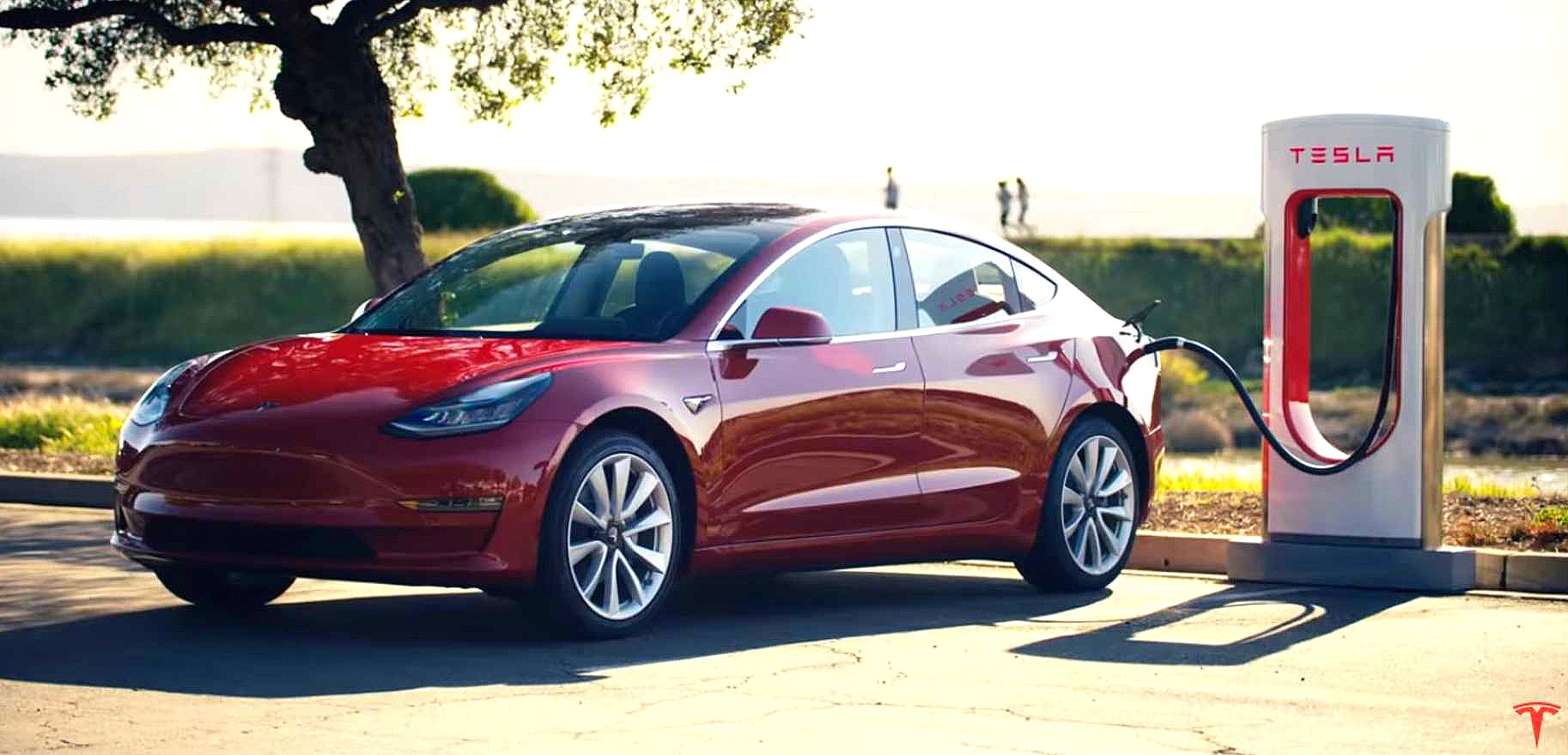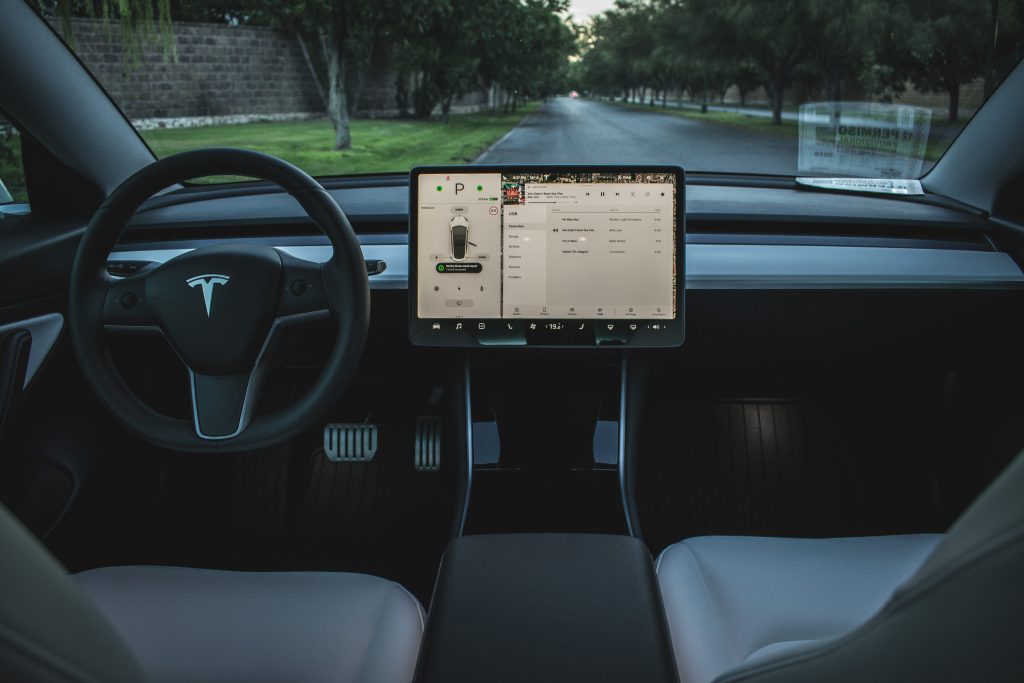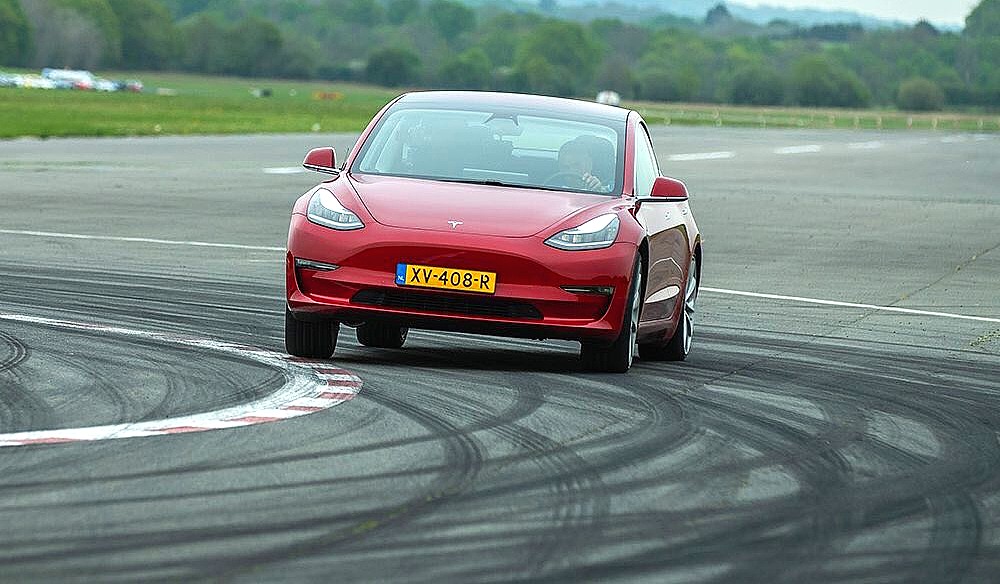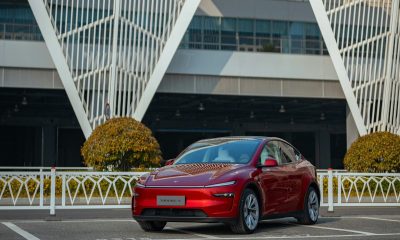

Investor's Corner
The Tesla Model 3’s defiance of TSLA critics and its EV market dominance explained
To state that Tesla (NASDAQ:TSLA) is a polarizing company would be an understatement. Tesla commands a strong following, comprised of avid supporters and passionate critics alike. This was particularly evident in the Model 3, a car that was declared a “lemon” by critics at one point, and a car that has become one of the most popular electric cars in the industry today.
The Model 3 has its own fair share of critics. Last September, high-profile TSLA short Jim Chanos declared that the Model 3 has inherent problems that make it a “lemon.” Seemingly in response to Chanos’ statement, the Model 3 dominated the US luxury auto market in 2018, and with its international rollout this year, the vehicle has also started making an impact in markets such as Norway and China.
TSLA investor @Incentives101, an economist with a background in macro research, stated in a message to Teslarati that Tesla’s vehicles, particularly the Model 3, defied several conventions when it was released. With its unique combination of uncompromising performance, efficiency, and a reasonable price, the Model 3 has become a vehicle that constantly defies critics every step of the way.

The economist explained that consumers purchase vehicles according to preferences that are subject to budget constraints. The buying process then becomes a matter of selecting which car is the best option within the confines of a budget. “Consumers preferences can be easily understood when there is data available i.e when they clearly show what they want. With a car or any good for that matter, consumers are basically solving an optimization problem. Hence, this is why advanced economic models — general equilibrium — are on essence an optimization problem,” the economist wrote.
There are many variables that consumers consider when purchasing a big-ticket item such as a car. Generally, there are no internal combustion vehicles that are as efficient as an electric car, but EVs prior to Teslas usually had worse performance and a higher price, which, in turn, discouraged buyers despite their lower total cost of ownership. Electric cars before the arrival of the original Tesla Roadster and the Model S also introduced a new constraint: range. Under these circumstances, it was not rare to see buyers who valued efficiency and/or are not price-sensitive selecting an EV, and those that valued performance and price opting for a petrol-powered car.
It is these very metrics that the Tesla Model 3 was able to completely address. Tesla refused to compromise with the Model 3, making the electric sedan a vehicle that is incredibly efficient with performance that matches the best that the industry has to offer. What’s remarkable was that Tesla was able to accomplish this while keeping the Model 3’s price reasonable. And this, according to the economist, has resonated with consumers. “When Elon Musk says it’s insane to buy something else other than a Tesla, it’s because it literally is. You can prove it with math,” the economist stated.

The researcher added that this is one of the key reasons why Tesla and the Model 3 have proven incredibly resilient despite the negative narrative surrounding the vehicle and the company as a whole. It is also something that is frequently misunderstood by mainstream analysts and the company’s critics alike. Fortunately for Tesla, consumers by nature are drawn to superior products, and this is steadily becoming more and more pronounced with the Model 3’s international expansion.
“Whenever you read experts saying that Tesla has a 10-year advantage, this is what it means. When the media and Wall Street compare Tesla to other OEMs, when they talk about units of cars vs. other OEMs, it really doesn’t matter. None of them can find an example in history when consumers have behaved as irrationally as what they’re implying. No matter how many hit pieces about Elon Musk or Tesla, how many stock downgrades, how many bear notes, consumers won’t care about it. We already know what consumers care about; it will be impossible to stop it,” the economist wrote.
Tesla stock has so far slipped around 32% this year, following a challenging first quarter and another loss in the second quarter despite record delivery numbers. By contrast, the S&P 500 has risen about 16.7% year to date.
Disclosure: I have no ownership in shares of TSLA and have no plans to initiate any positions within 72 hours.
Elon Musk
Tesla analysts believe Musk and Trump feud will pass
Tesla CEO Elon Musk and U.S. President Donald Trump’s feud shall pass, several bulls say.

Tesla analysts are breaking down the current feud between CEO Elon Musk and U.S. President Donald Trump, as the two continue to disagree on the “Big Beautiful Bill” and its impact on the country’s national debt.
Musk, who headed the Department of Government Efficiency (DOGE) under the Trump Administration, left his post in May. Soon thereafter, he and President Trump entered a very public and verbal disagreement, where things turned sour. They reconciled to an extent, and things seemed to be in the past.
However, the second disagreement between the two started on Monday, as Musk continued to push back on the “Big Beautiful Bill” that the Trump administration is attempting to sign into law. It would, by Musk’s estimation, increase spending and reverse the work DOGE did to trim the deficit.
Every member of Congress who campaigned on reducing government spending and then immediately voted for the biggest debt increase in history should hang their head in shame!
And they will lose their primary next year if it is the last thing I do on this Earth.
— Elon Musk (@elonmusk) June 30, 2025
President Trump has hinted that DOGE could be “the monster” that “eats Elon,” threatening to end the subsidies that SpaceX and Tesla receive. Musk has not been opposed to ending government subsidies for companies, including his own, as long as they are all abolished.
How Tesla could benefit from the ‘Big Beautiful Bill’ that axes EV subsidies
Despite this contentious back-and-forth between the two, analysts are sharing their opinions now, and a few of the more bullish Tesla observers are convinced that this feud will pass, Trump and Musk will resolve their differences as they have before, and things will return to normal.
ARK Invest’s Cathie Wood said this morning that the feud between Musk and Trump is another example of “this too shall pass:”
BREAKING: CATHIE WOOD SAYS — ELON AND TRUMP FEUD “WILL PASS” 👀 $TSLA
She remains bullish ! pic.twitter.com/w5rW2gfCkx
— TheSonOfWalkley (@TheSonOfWalkley) July 1, 2025
Additionally, Wedbush’s Dan Ives, in a note to investors this morning, said that the situation “will settle:”
“We believe this situation will settle and at the end of the day Musk needs Trump and Trump needs Musk given the AI Arms Race going on between the US and China. The jabs between Musk and Trump will continue as the Budget rolls through Congress but Tesla investors want Musk to focus on driving Tesla and stop this political angle…which has turned into a life of its own in a roller coaster ride since the November elections.”
Tesla shares are down about 5 percent at 3:10 p.m. on the East Coast.
Elon Musk
Tesla investors will be shocked by Jim Cramer’s latest assessment
Jim Cramer is now speaking positively about Tesla, especially in terms of its Robotaxi performance and its perception as a company.

Tesla investors will be shocked by analyst Jim Cramer’s latest assessment of the company.
When it comes to Tesla analysts, many of them are consistent. The bulls usually stay the bulls, and the bears usually stay the bears. The notable analysts on each side are Dan Ives and Adam Jonas for the bulls, and Gordon Johnson for the bears.
Jim Cramer is one analyst who does not necessarily fit this mold. Cramer, who hosts CNBC’s Mad Money, has switched his opinion on Tesla stock (NASDAQ: TSLA) many times.
He has been bullish, like he was when he said the stock was a “sleeping giant” two years ago, and he has been bearish, like he was when he said there was “nothing magnificent” about the company just a few months ago.
Now, he is back to being a bull.
Cramer’s comments were related to two key points: how NVIDIA CEO Jensen Huang describes Tesla after working closely with the Company through their transactions, and how it is not a car company, as well as the recent launch of the Robotaxi fleet.
Jensen Huang’s Tesla Narrative
Cramer says that the narrative on quarterly and annual deliveries is overblown, and those who continue to worry about Tesla’s performance on that metric are misled.
“It’s not a car company,” he said.
He went on to say that people like Huang speak highly of Tesla, and that should be enough to deter any true skepticism:
“I believe what Musk says cause Musk is working with Jensen and Jensen’s telling me what’s happening on the other side is pretty amazing.”
Tesla self-driving development gets huge compliment from NVIDIA CEO
Robotaxi Launch
Many media outlets are being extremely negative regarding the early rollout of Tesla’s Robotaxi platform in Austin, Texas.
There have been a handful of small issues, but nothing significant. Cramer says that humans make mistakes in vehicles too, yet, when Tesla’s test phase of the Robotaxi does it, it’s front page news and needs to be magnified.
He said:
“Look, I mean, drivers make mistakes all the time. Why should we hold Tesla to a standard where there can be no mistakes?”
It’s refreshing to hear Cramer speak logically about the Robotaxi fleet, as Tesla has taken every measure to ensure there are no mishaps. There are safety monitors in the passenger seat, and the area of travel is limited, confined to a small number of people.
Tesla is still improving and hopes to remove teleoperators and safety monitors slowly, as CEO Elon Musk said more freedom could be granted within one or two months.
Investor's Corner
Tesla gets $475 price target from Benchmark amid initial Robotaxi rollout
Tesla’s limited rollout of its Robotaxi service in Austin is already catching the eye of Wall Street.

Venture capital firm Benchmark recently reiterated its “Buy” rating and raised its price target on Tesla stock (NASDAQ: TSLA) from $350 to $475 per share, citing the company’s initial Robotaxi service deployment as a sign of future growth potential.
Benchmark analyst Mickey Legg praised the Robotaxi service pilot’s “controlled and safety-first approach,” adding that it could help Tesla earn the trust of regulators and the general public.
Confidence in camera-based autonomy
Legg reiterated Benchmark’s belief in Tesla’s vision-only approach to autonomous driving. “We are a believer in Tesla’s camera-focused approach that is not only cost effective but also scalable,” he noted.
The analyst contrasted Tesla’s simple setup with the more expensive hardware stacks used by competitors like Waymo, which use various sophisticated sensors that hike up costs, as noted in an Investing.com report. Compared to Tesla’s Model Y Robotaxis, Waymo’s self-driving cars are significantly more expensive.
He also pointed to upcoming Texas regulations set to take effect in September, suggesting they could help create a regulatory framework favorable to autonomous services in other cities.
“New regulations for autonomous vehicles are set to go into place on Sept. 1 in TX that we believe will further help win trust and pave the way for expansion to additional cities,” the analyst wrote.
Tesla as a robotics powerhouse
Beyond robotaxis, Legg sees Tesla evolving beyond its roots as an electric vehicle maker. He noted that Tesla’s humanoid robot, Optimus, could be a long-term growth driver alongside new vehicle programs and other future initiatives.
“In our view, the company is undergoing an evolution from a trailblazing vehicle OEM to a high-tech automation and robotics company with unmatched domestic manufacturing scale,” he wrote.
Benchmark noted that Tesla stock had rebounded over 50% from its April lows, driven in part by easing tariff concerns and growing momentum around autonomy. With its initial Robotaxi rollout now underway, the firm has returned to its previous $475 per share target and reaffirmed TSLA as a Benchmark Top Pick for 2025.
-

 Elon Musk1 day ago
Elon Musk1 day agoTesla investors will be shocked by Jim Cramer’s latest assessment
-

 News6 days ago
News6 days agoTesla Robotaxi’s biggest challenge seems to be this one thing
-

 News2 weeks ago
News2 weeks agoTesla’s Grok integration will be more realistic with this cool feature
-

 Elon Musk2 weeks ago
Elon Musk2 weeks agoElon Musk slams Bloomberg’s shocking xAI cash burn claims
-

 News2 weeks ago
News2 weeks agoTesla China roars back with highest vehicle registrations this Q2 so far
-

 News2 weeks ago
News2 weeks agoTexas lawmakers urge Tesla to delay Austin robotaxi launch to September
-

 News2 weeks ago
News2 weeks agoTesla dominates Cars.com’s Made in America Index with clean sweep
-

 Elon Musk1 week ago
Elon Musk1 week agoFirst Look at Tesla’s Robotaxi App: features, design, and more















